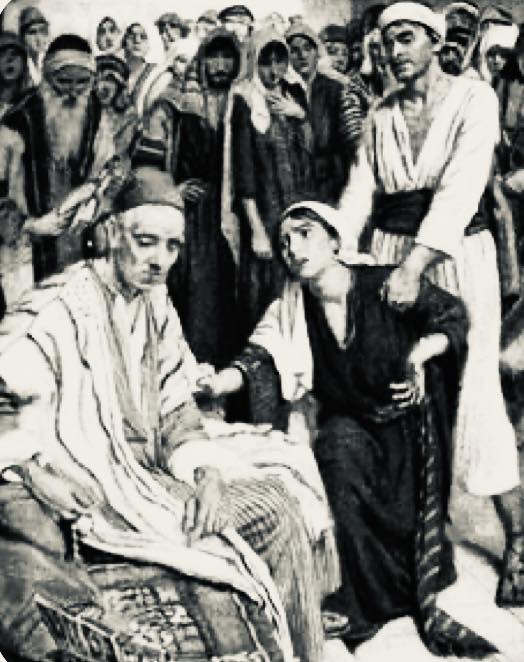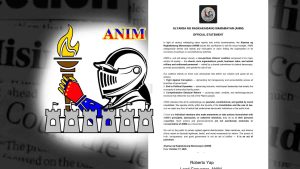379 total views

29th Sunday C
Ex. 17:8-13
The passage recounts a story centered around Rephidim, linked to the word for support, and the altar Yahweh-nissi, meaning “The Lord is my banner.” This locale is associated with Yahweh’s support in battle through Moses’ staff, symbolizing divine protection often represented by standards in antiquity. During the battle, Moses extends the “staff of God,” akin to the rod used against Pharaoh, to ensure victory. The Amalekites, a nomadic tribe in southern Palestine, are defeated here, though Deuteronomy presents a less favorable outcome. Joshua leads Israel’s forces, later becoming Moses’ successor, while Hur, possibly a priest, is also involved. The battle’s outcome depends on Yahweh’s support, evidenced by Moses’ sustained hands, which, if lowered, would lead to Israel’s defeat. Moses’ exhaustion hints at his future sharing of authority.
Ps 121
The note of confidence is woven into the fabric of this psalm in line with the central theme of today’s liturgy: trust in the Lord’s fidelity.
2 Tm. 3:14-4:2
Paul exhorts Timothy, in the midst of depravity, false teaching and persecution (vv. 1-13), to be steadfast to what he has been taught and to Scripture, which is inspired by God (vv. 14-17). Then he charged him to “proclaim the word; be persistent whether it is convenient or inconvenient; convince, reprimand, encourage through all patience and teaching, (4:1-2).
Lk. 18:1-8.
Found only in Luke, this parable emphasizes the importance of persistent prayer. The dishonest judge (v6) ignores God and others (v2), while the widow (v3) symbolizes the disadvantaged, relying on God due to her dependence. Her perseverance leads to her vindication, demonstrating that a faithful God will respond to steadfast prayer, unlike the unjust judge. The phrase ‘Strike me’ (v5) may be figurative for wearing down resolve. Faith is central, as seen in v8, highlighting that the return of the Son of Man has been delayed. Jesus asks whether faith will endure until His coming, emphasizing a steadfast attitude in prayer over repetitive words.
The gospel story reflects today’s challenges, with the unjust judge symbolizing corrupt leaders who disregard their responsibilities. Their actions lead to disasters affecting many and divert public funds from the needy.
Though unjust systems and their perprerators may resist change, our God responds to persistent prayer. The widow represents unwavering faith, showing that constant prayer can combat corruption. We must foster a spirit of worship, renewal, and repentance across the nation.
While injustice may endure, we hope for a faithful community. Personal perseverance in prayer strengthens our faith, much like Moses’ unwavering hands ensured divine support. St. Paul encourages tireless dedication to our mission. Like the widow, may we remain steadfast in our prayers and good works, trusting in our merciful Father. Amen!








